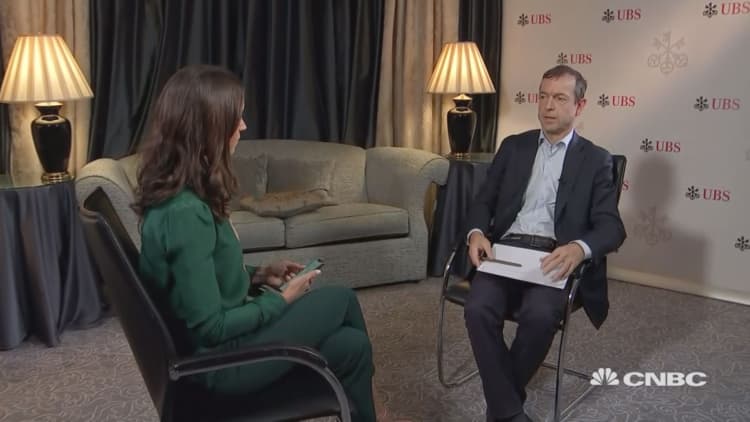Italy's financial turmoil is "self-made" and would not have arisen if the government had complied with EU recommendations, a leading European think thank has told CNBC.
Speaking to CNBC's Joumanna Bercetche on Tuesday, Daniel Gros, director of the Centre for European Policy Studies, said Italian politicians had made decisions that set Italy on the wrong path.
"Six months ago Italy looked fine," he said. "If the new government had done nothing, then Italy would be on a nice path with low interest rates (and a) debt level which goes down."
Rancour between Rome and Brussels has grown in recent weeks after a controversial draft Italian budget for 2019 proposed a deficit equal to 2.4 percent of the country's annual output. A previous Italian administration had promised a deficit goal of just 0.8 percent of GDP (gross domestic product).
Gros also speculated that Italy would continue to rebel against European Union's rules, but would eventually have no choice but to comply.
"Everybody is telling Italy: 'These rules might be tough in the short run, but in the end they deliver growth – stick to them.' And it's up to the Italians to listen," he told CNBC.
"They will not listen to European rules because they said our votes, our people are more important than European rules and these European bureaucrats. But they forget that the other people out there, people in the markets, have to give their government the money to spend what they want to."

In recent weeks, Italian borrowing on 10-year paper has reached levels not seen since 2014.
Brussels is locked in a back and forth with the Italian government over budget negotiations, and rejected Italy's 2019 spending proposal in October. At the time, the European Commission said the draft budget required substantial adjustment.
Gros added that despite the current political turmoil, the euro zone would only strengthen with time.
"I think in the end the Italians will see that the European rules are in their own long-term interests, and therefore in the very long run the euro zone will be more cohesive," he said.
"Merkel, Macron – they come and go, but the fundamental interest of France and Germany stays the same. The only question is how we get Italy into the fold."
No big changes expected
Rome has until the end of the day to submit an amended draft of its 2019 budget proposal to the European Commission.
However, an Italian minister told CNBC on Tuesday that Italy would not make any big changes to its 2019 spending plan. On Friday, Italy's prime minister Giuseppe Conte said no alternative fiscal policy would work for the country.
"I don't expect the Italian government to make any substantial revisions," Lorenzo Fioramonti, a junior minister for the Five Star Movement who was involved in drawing up the party's economic policy, told CNBC's Willem Marx.
"I think there may be a dialogue around some potential second steps, but I think the bulk, the core of what's being proposed will stay the same."

